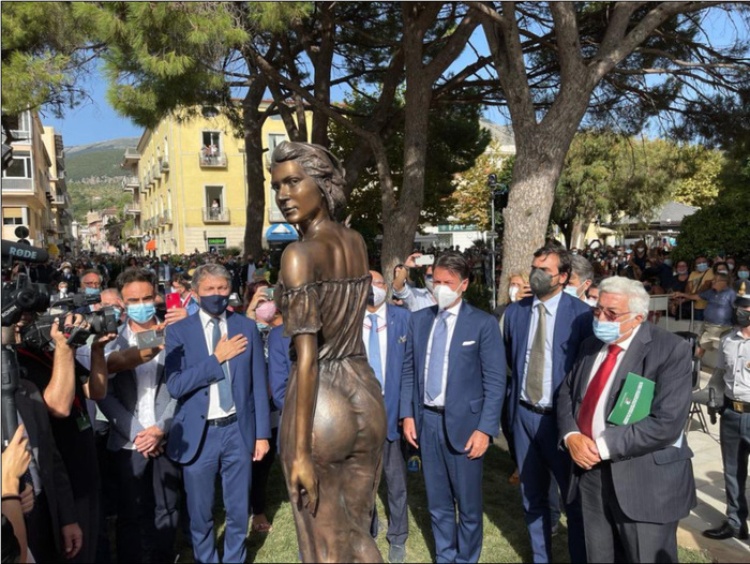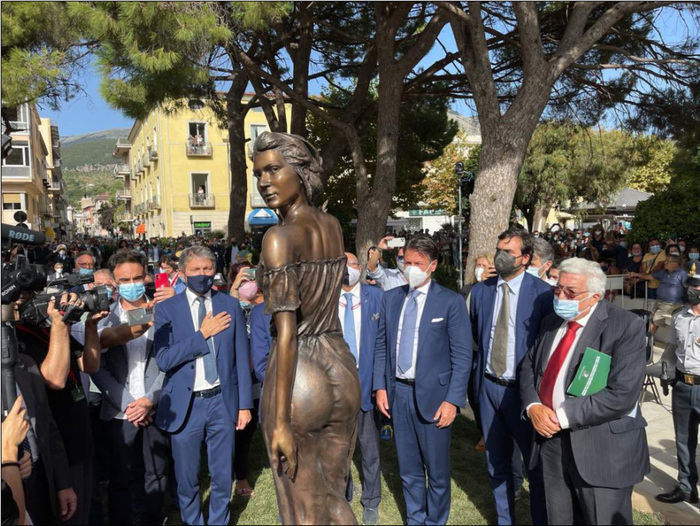The statue was unveiled on Saturday in Sapri, in the southern Italian region of Campania, in the presence of Five Star Movement (M5S) leader and former Italian prime minister, Giuseppe Conte.
The work is an ode to Italian writer and poet Luigi Mercantini’s poem La spigolatrice di Sapri (The Gleaner of Sapri), about socialist Carlo Pisacane’s ill-fated 1857 expedition against the Kingdom of Naples, in which 300 people lost their lives.
Sculpted by Emanuele Stifano, it portrays the woman in a transparent, tight-fitting dress and has sparked widespread outrage on social media.
Laura Boldrini, a deputy with the centre-left Democratic Party (PD), said the statue was an “offence to women and the history it should celebrate”.
Monica Cirinna, a senator for the PD, called for the statue’s removal and deemed it “a slap on the face of history and of women, who are still [treated as] sexualised bodies”.
A #Sapri uno schiaffo alla storia e alle donne che ancora sono solo corpi sessualizzati Questa statua della Spigolatrice nulla dice dell'autodeterminazione di colei che scelse di non andare a lavoro per schierarsi contro l'oppressore borbonico.
— Monica Cirinnà (@MonicaCirinna) September 26, 2021
Sia rimossa! @DonnePd @pdsicilia pic.twitter.com/2qv8tP7FTN
A group of female politicians from the PD’s unit in the Sicilian capital of Palermo called for the statue to be knocked down.
“Once again, we have to suffer the humiliation of seeing ourselves represented in the form of a sexualised body, devoid of soul and without any connection to the social and political issues,” the group said in a statement.
They argued that the statue reflected nothing of the anti-Bourbon revolution nor the “self-determination of a woman who chooses not to go to work in order to take sides against the oppressor”.
Stifano has defended his work, writing on Facebook that had it been up to him the figure would have been “completely naked... simply because I am a lover of the human body”.
The artist also said he thought it was “useless” to offer explanations to those “who absolutely want to see depravity” in the statue.
Sapri’s mayor Antonio Gentile also defended the sculpture, which he said was “made with skill and impeccable interpretation”.












